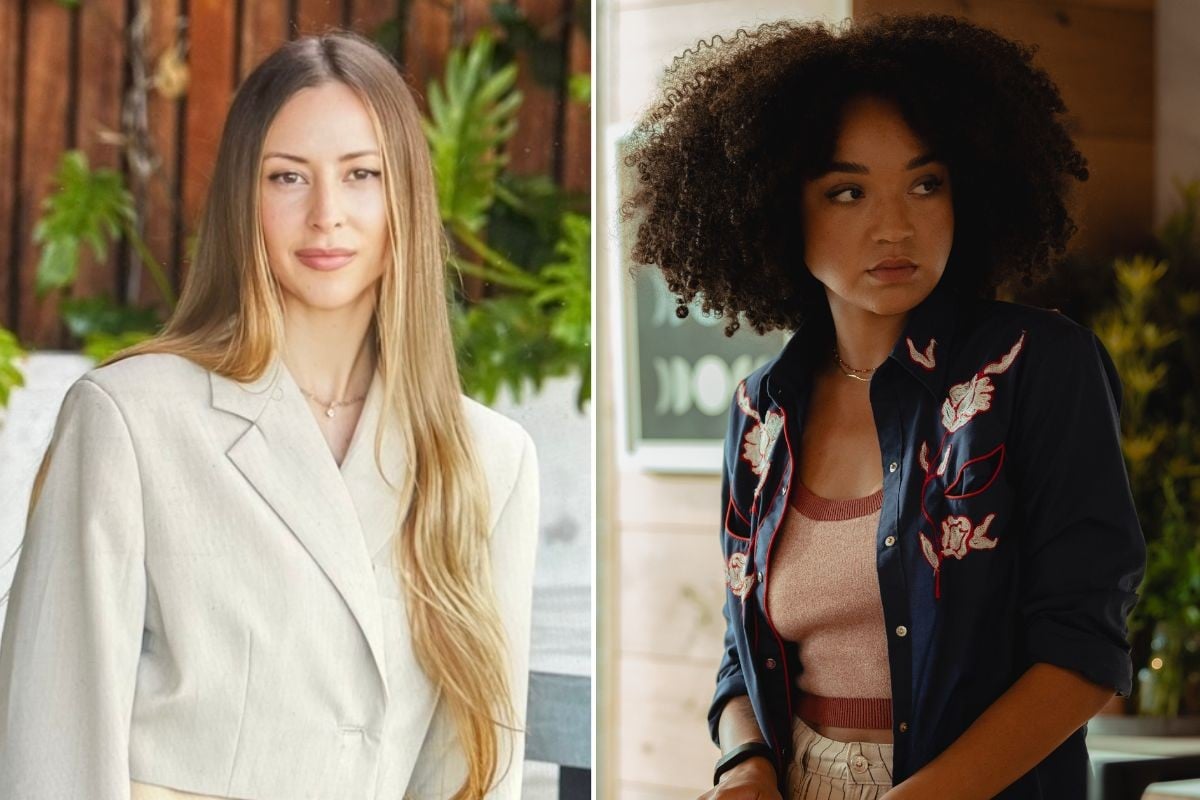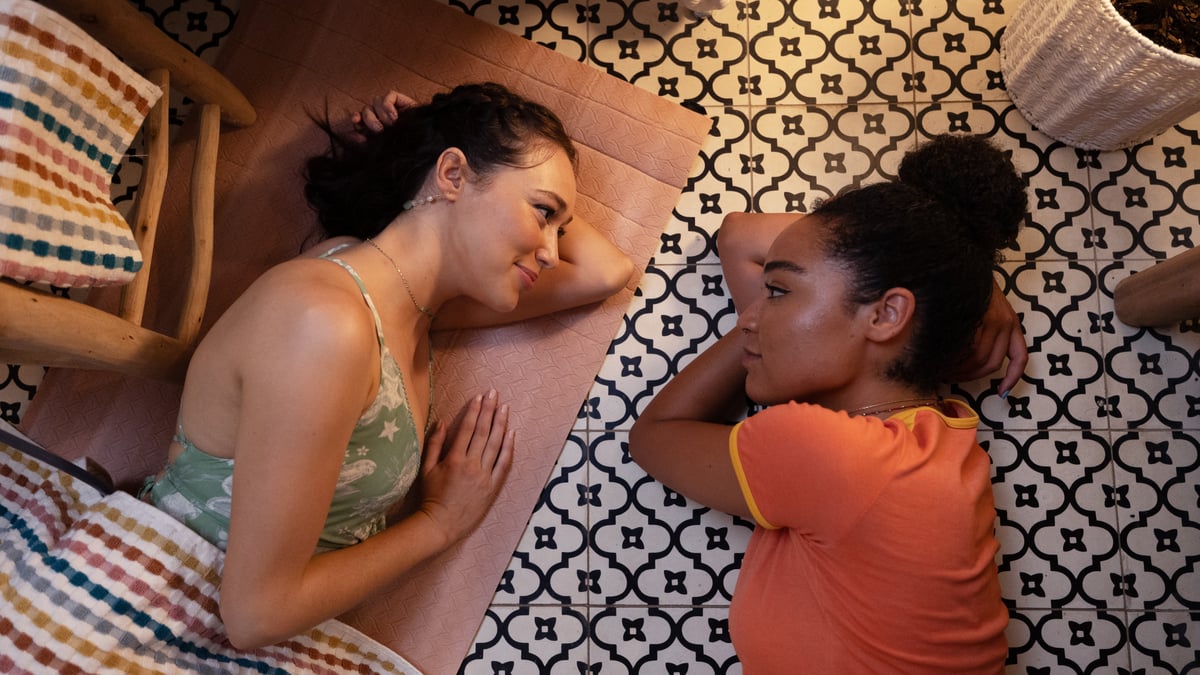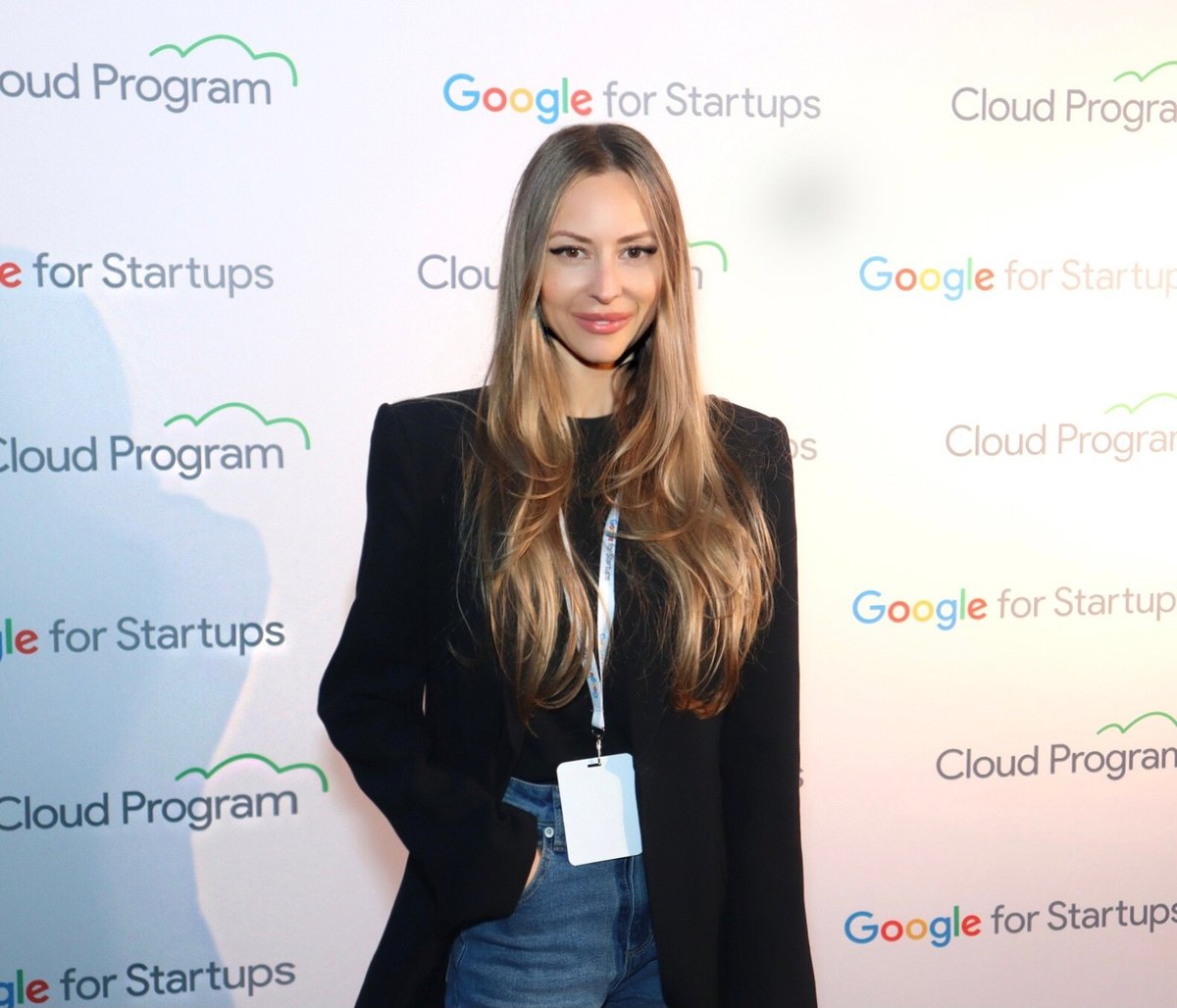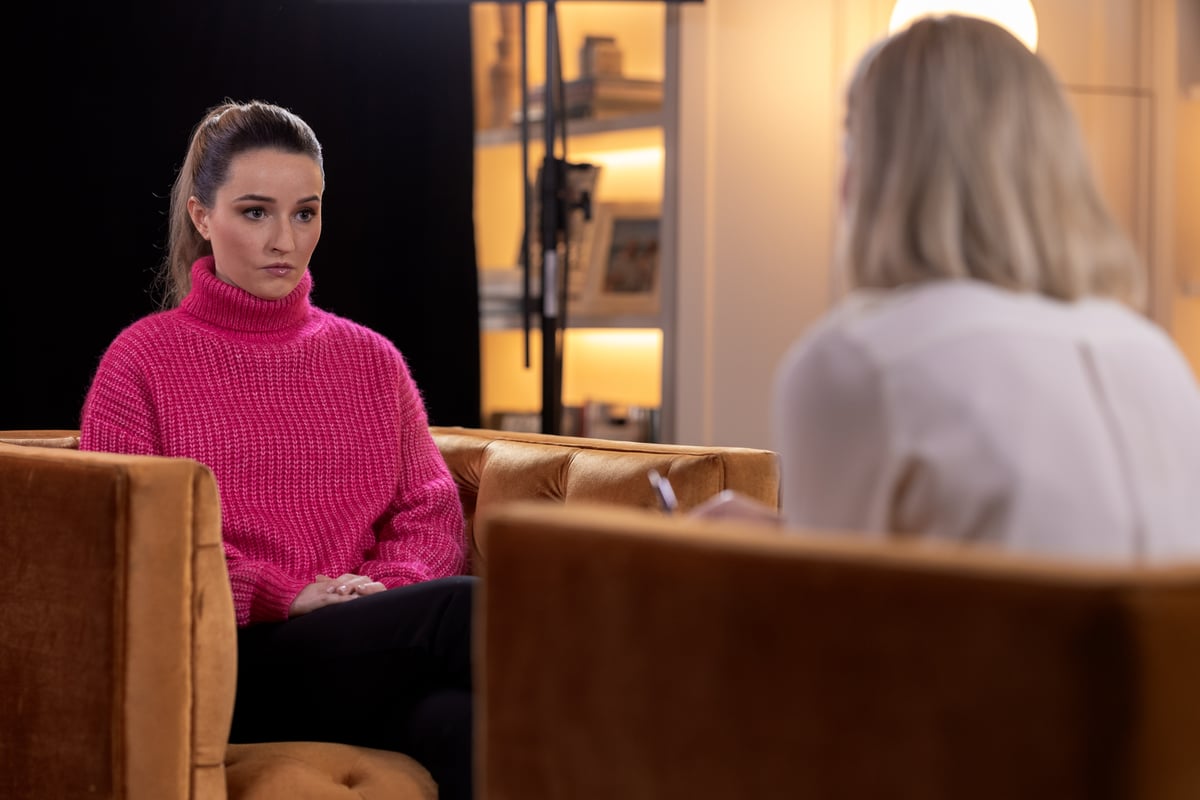
Chanelle McAuliffe wasn't originally planning on watching Apple Cider Vinegar, the Netflix show about her former friend Belle Gibson, featuring a character based on herself.
She felt really gross about it. That it even existed in the first place.
"I did have to force myself to watch it. Overall, I'm not entirely a huge fan of the show for a number of reasons," she told Mamamia's True Crime Conversations.
"I'm not entirely comfortable with the dramatisation and sensationalisation of the story, [and] the show has distorted the truth a little bit as well.
"I'm [also] not comfortable with the capitalisation of the harm that was caused to people with cancer. I've been thinking a lot about the ethics of this kind of storytelling," she said.
Listen to Chanelle McAuliffe chatting to True Crime Conversations. Post continues below.
McAuliffe met Gibson at the launch of her healthy recipe app The Whole Pantry in August 2013, which was an instant success, downloaded 200,000 times in its first month.
By then, Gibson had a dedicated audience on social media who were following along on her journey 'healing terminal brain cancer' with alternative remedies and healthy food.
McAuliffe was doing an internship for a Melbourne publication at the time, and they'd asked her to interview the entrepreneur for an article. The two became friends, with McAuliffe finding the single-mum and cancer survivor to be warm and charismatic.































































































